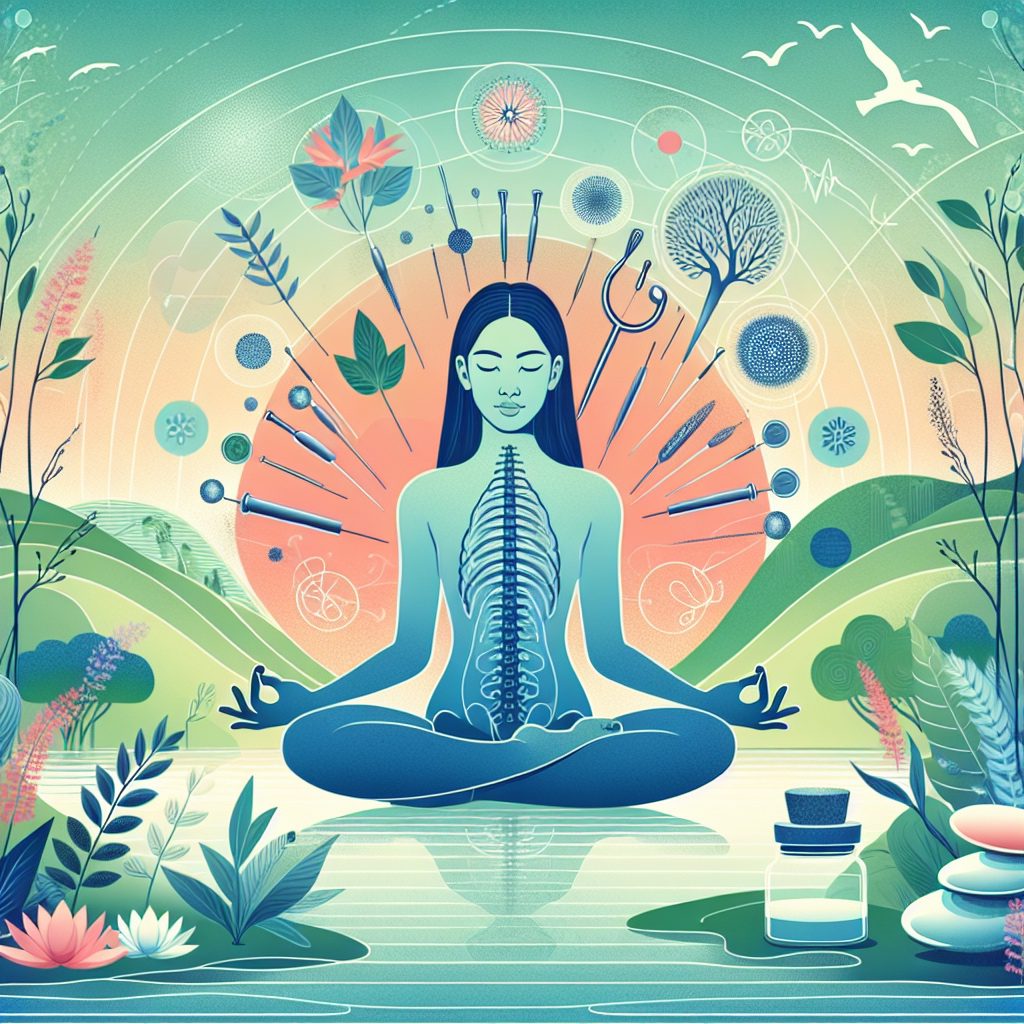In recent years, a remarkable shift has been taking place in the landscape of modern healthcare. The ancient wisdom of the East is steadily making its way into Western medical practices, sparking a revolution that’s transforming how we approach health and wellness. ## Integration of Eastern Wisdom and Western Medicine
This integration of Eastern philosophy into Western medicine isn’t just a passing trend; it’s a powerful movement towards a more holistic approach to healthcare that considers the delicate balance of mind, body, and spirit. Increasingly, individual clients, pharmacists, and small health product studios across the United States are embracing this fusion, recognizing the profound benefits of combining time-tested traditional practices with cutting-edge medical advancements. This growing interest reflects a deeper understanding that true health goes beyond simply treating symptoms, but rather involves nurturing overall well-being through a comprehensive, integrated approach. As we witness this exciting convergence of Eastern wisdom and Western science, we’re uncovering new pathways to health that honor both our modern knowledge and the time-honored traditions that have sustained human wellness for millennia.
Eastern Philosophies in Modern Healthcare
Delving deeper into the heart of this East-meets-West revolution, we find ourselves exploring the rich tapestry of Eastern philosophies and practices that are making significant inroads in modern healthcare. At the forefront of this integration are Traditional Chinese Medicine (TCM) and Ayurveda, two ancient systems that have stood the test of time and are now gaining recognition for their holistic approaches to health and wellness.
Central to TCM is the concept of Qi, often translated as “vital energy,” which represents the life force flowing within all living beings. This energy is believed to circulate through the body along specific pathways called meridians, influencing our physical, mental, and emotional well-being. Closely intertwined with Qi is the principle of Yin and Yang, representing the harmony of opposites. In TCM, health is viewed as a state of balance between these complementary forces, with disease arising from their disharmony.
The application of these Eastern principles in modern healthcare is evident in the growing popularity of acupuncture. This ancient technique involves the insertion of thin needles at specific points along the body’s meridians to restore the flow of Qi and rebalance Yin and Yang. Western medical institutions are increasingly recognizing acupuncture’s efficacy in managing chronic pain, reducing stress, and improving overall well-being.
Herbal medicine, another cornerstone of Eastern traditional practices, is also finding its place in modern healthcare. TCM’s extensive pharmacopeia of natural ingredients is being studied and integrated into contemporary treatments, offering alternatives or complements to synthetic drugs. This approach aligns with the growing demand for natural, plant-based remedies and reflects a shift towards more sustainable and holistic healthcare solutions.
Mindfulness meditation, rooted in Eastern spiritual traditions, has become a powerful tool in modern mental health care. This practice encourages individuals to focus on the present moment, fostering mental clarity and emotional balance. Healthcare providers are incorporating mindfulness techniques to help patients manage stress, anxiety, and depression, recognizing the profound impact of mental well-being on overall health.
Shifting Perspectives in Health and Healing
The adoption of these Eastern practices in Western healthcare goes beyond simply borrowing techniques. It represents a fundamental shift in how we perceive health and healing. The Eastern perspective emphasizes prevention and maintaining balance, rather than just treating symptoms after they appear. This proactive approach to health aligns with the growing emphasis on preventive care in modern medicine.
Moreover, the integration of Eastern wisdom is paving the way for more personalized healthcare. Traditional practices like TCM and Ayurveda have always emphasized the importance of individual constitution and lifestyle in determining health outcomes. This personalized approach resonates with the modern trend towards precision medicine, where treatments are tailored to individual genetic profiles and life circumstances.
As we continue to explore the synergies between Eastern and Western approaches, we’re witnessing the emergence of truly integrative medicine. This new paradigm combines the best of both worlds – the rigorous scientific approach of Western medicine with the holistic, nature-based wisdom of Eastern traditions. The result is a more comprehensive, patient-centered approach to healthcare that addresses the complexities of human health in our modern world.
The Future of Holistic and Integrative Medicine
The implications of adopting a holistic approach for future healthcare are profound and far-reaching. As we continue to witness the integration of Eastern wisdom and Western medical practices, we’re seeing a paradigm shift that promises to revolutionize how we approach health and wellness. This fusion is not merely about combining different techniques; it’s about fundamentally reimagining healthcare to create a more comprehensive, personalized, and effective system.
At the heart of this transformation is the philosophy of integrative medicine, which seeks to treat the whole person rather than just isolated symptoms. This approach, exemplified by companies like HerbalsZen, blends ancient wisdom with modern science to offer natural ingredient solutions that support overall health and vitality. By embracing nature’s healing powers and combining them with scientific rigor, we’re opening up new possibilities for treatment and prevention.
One of the most exciting prospects of this holistic approach is the potential for truly personalized treatment plans. By considering an individual’s unique physical, mental, and emotional makeup, healthcare providers can tailor interventions that are more likely to be effective and sustainable. This personalization extends beyond just medical treatments to encompass lifestyle recommendations, dietary advice, and stress management techniques, creating a comprehensive strategy for health and wellness.
The emphasis on prevention in Eastern health philosophies aligns perfectly with the growing recognition in Western medicine of the importance of proactive health management. By focusing on maintaining balance and vitality, rather than just treating disease, we have the potential to significantly reduce the burden of chronic illnesses that plague modern society. This preventive approach not only improves individual quality of life but also has the potential to dramatically reduce healthcare costs in the long term.
Moreover, the integration of natural ingredients and traditional remedies into modern healthcare offers an exciting avenue for developing new treatments. As companies like HerbalsZen continue to research and develop high-quality natural products, we’re likely to see an expansion of options for those seeking alternatives or complements to conventional medications. This trend towards natural solutions resonates with a growing public desire for more holistic, less invasive approaches to health.
The holistic approach also recognizes the crucial role of mental and emotional well-being in overall health. By incorporating practices like mindfulness meditation and stress reduction techniques, we’re addressing the often-overlooked psychological aspects of health. This integration of mind-body practices has the potential to revolutionize our approach to mental health care and improve outcomes across a wide range of conditions.
As we look to the future, the continued integration of Eastern wisdom and Western medicine holds immense promise. It offers the potential for a healthcare system that is more effective, more sustainable, and more attuned to the complex needs of individuals in our modern world. By embracing this holistic approach, we’re not just improving healthcare – we’re reimagining what it means to be truly healthy.
In conclusion, the revolution sparked by the integration of Eastern wisdom into modern healthcare is just beginning. As we continue to explore and refine this approach, we’re laying the groundwork for a future where healthcare is more personalized, more preventive, and more holistic. By harnessing the best of both Eastern and Western traditions, we’re creating a new paradigm of health that promises to enhance our ability to prevent disease, promote wellness, and support the innate healing capacities of the human body and mind.




